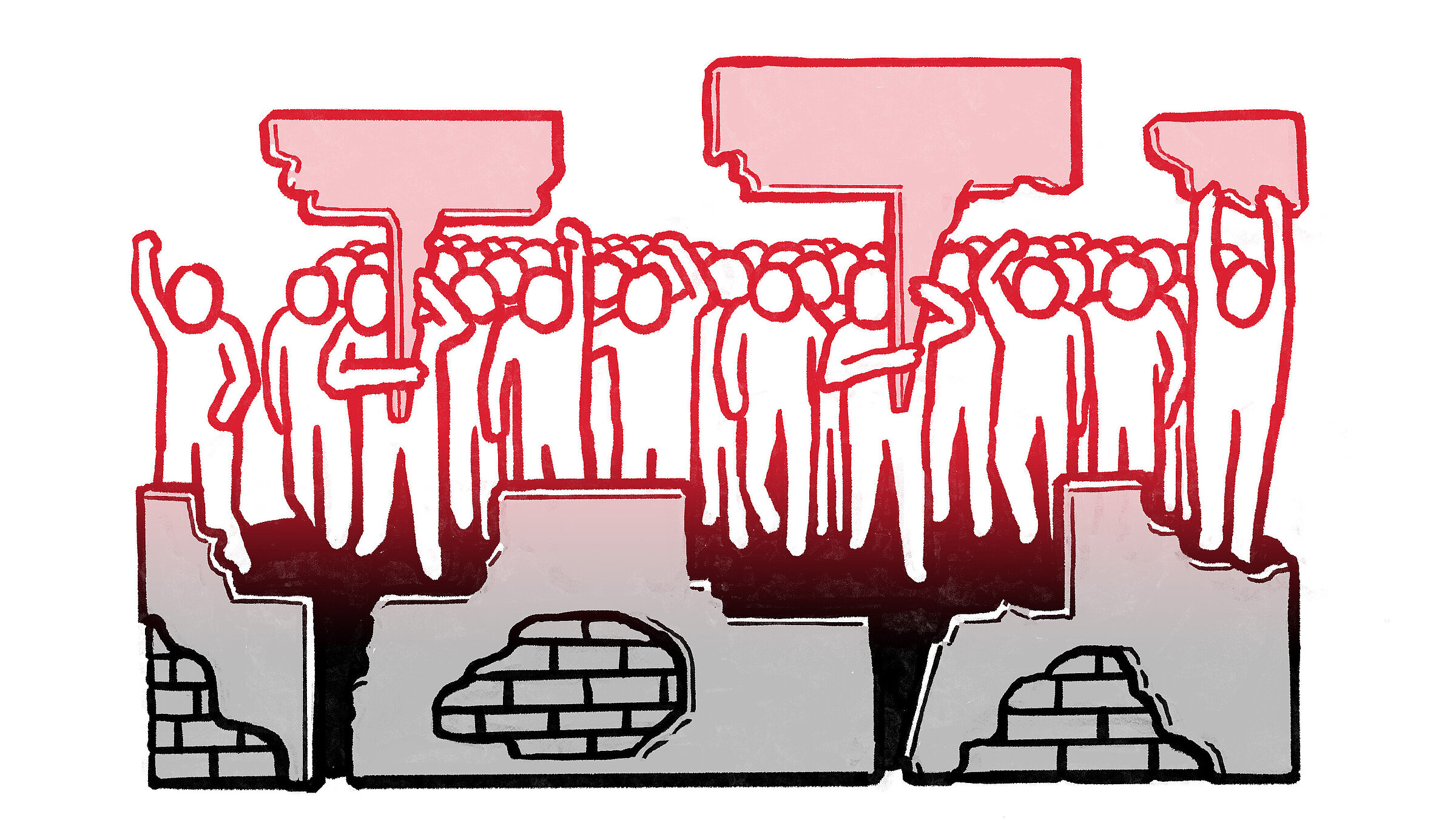What does it do to people when they live through war? What makes them take to the streets? And how much does freedom mean to them? Gwendolyn Sasse analyzes what makes the societies of Eastern Europe tick. Her aim is to generate useful knowledge for policymakers and the public through empirical research.
We need the insight into societies that social science offers. Using empirical methods, we can observe, a bit like in a laboratory, what happens to people when they experience transformation processes, upheavals or war. To do this, we are constantly collecting data. We can even get a handle on aspects of grand concepts like democracy, authoritarianism, and identity. Of course, we don’t don white coats for this kind of research. Societies are not like microbes – you need empathy to understand them. So we ask how people behave, what expectations, hopes or perceptions they have, and how these are – or aren’t – reflected in politics.
For many years now, I have been conducting research into social and political changes in Eastern Europe, especially in Russia, Ukraine, and Belarus. I am interested in the dynamics of mass protests, conflicts, and war, and in democratization processes and authoritarian tendencies. Eastern Europe is an extremely fertile region for this kind of research. We develop surveys, creating our own statistical data on the basis of local expertise. We combine this data with focus group discussions to find out what things are really important to people, and with longer interviews with individuals where we ask them to share their experiences. Taken together, these methods help us get a feel for what drives people.
At the Centre for East European and International Studies in Berlin, for instance, we researched mass protests in Belarus, and in Russia we studied how having foreign relationships influences the political views of the younger generation. Neither of these studies would be possible today. Fear of repression would prevent most people from taking part in such surveys now – if governments allowed them to be conducted at all.
Exploring what drives societies is extremely valuable. Often we only hear statements from elites, for instance when they decide to start or end a war. There are large gaps in our knowledge about what people think and experience day to day – what wars do to them, how they adapt to authoritarian systems, and when they take to the streets to fight for freedom.
Since completing my PhD, I’ve been closely following developments in Ukraine. Even now, we are continuing our work there, as far as we can. At the moment, of course, it’s not clear how representative our data is, but I believe that we mustn’t let this moment go unrecorded. Areas we are looking at include identity, and opinions on democracy and on integration into Western institutions. One trend that we have been observing since 2014 is that, as a result of Russia’s aggression, the people define themselves much more strongly in terms of their citizenship, and understanding for the role of the Ukrainian state has become much more pronounced. A clear majority of Ukrainians wants a different political model than the Russian one, and wants to live in a democracy. This was evident even before the large-scale war of aggression that started in February 2022.
It is important for the social sciences to generate knowledge for policymakers and the public. Russia’s invasion of Ukraine showed us how important expertise on Eastern Europe can be. For many people, the attack came as a big surprise, even though the war has been running since 2014. Most people didn’t even know the first thing about Ukraine. In people’s heads, the borders between Russia and other states that were formerly part of the Soviet Union are still blurred. And if you say, for example, that Crimea is historically Russian (even if you see the annexation as a violation of international law), then you have already unquestioningly adopted the official Russian point of view. So I see it as our responsibility to paint a much more nuanced picture of Eastern Europe than the one that exists in many people’s heads – in the same way that biologists and virologists help us understand Covid.


